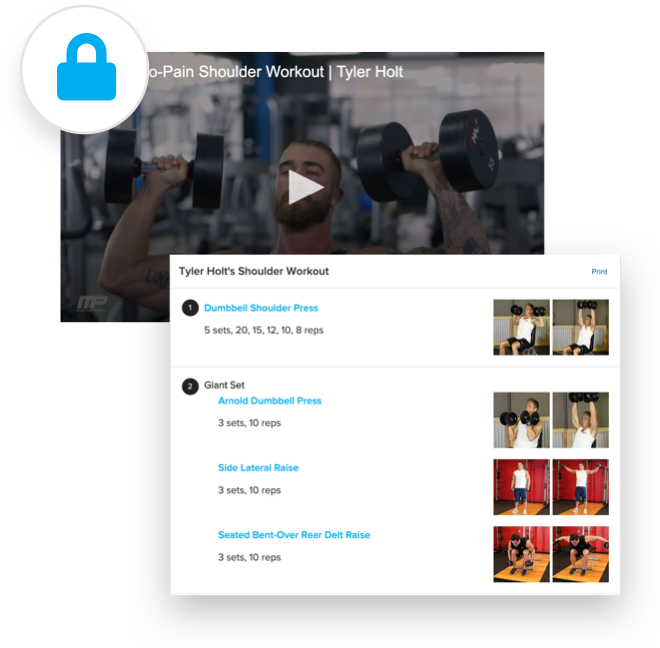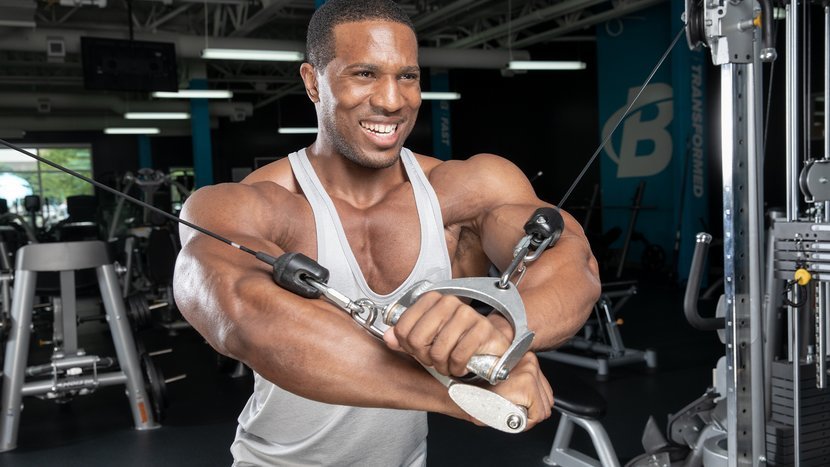One of the perks of my job is getting to meet some pretty phenomenal athletes from many different sports backgrounds. When one of them is the Queen Bee of power, you have to take her to your gym and let her show you what the word "train" really means.
Laura Phelps is an eight-time world record holder in women's multi-ply powerlifting, including a 775-pound squat and 540-pound bench press. Her 1,800-pound total is the highest ranked total by formula, which makes her the strongest female powerlifter to date. Even more intriguing is that she's one of a handful of women who have been coached under Louie Simmons of Westside Barbell.
The conjugate method of training that Westside is known for has sparked conflict in the powerlifting community. Some love it, some hate it, some don't know a damn thing about it. Without diving too deeply into either side of the argument, I knew I couldn't make a sweeping statement without having at least tried it.
When you're in a rut with your programming, switching things up can really help. So, I'm wading my way into the world of bands and chains and accessories galore, and I have to say, I'm loving it. Don't get me wrong, these are some of the longest and most tiring sessions I've ever done since starting powerlifting, but at the same time, it's an extremely refreshing break from the basic squat, bench, dead with a straight bar week after week.
The greater variation in exercises makes for a more engaging workout. Eventually you will cycle back to certain ones and ideally PR on them, even if it's just 2.5-5 pounds. The constant variety is a big part of what a lot of people criticize about the conjugate method, but, hey, it's getting me excited to train—even though I'm getting worked. Time will tell how much my strength improves, but my opinion as of now is a big thumbs-up.
Despite the intimidating fact that Phelps can outlift me by hundreds of pounds, it was cool to get the one-on-one instruction and also have the opportunity to observe her lifting with my own eyes.
Here's what we did for our training session:
1. Squat with Chains and Down Sets
The Conjugate Method will have you using multiple types of bars if you have access to them, such as the safety squat bar, bamboo bar, and football bar, among others. Today we worked with just the straight bar and one chain on each side. If you've never squatted with chains, it can be a bit of a weird sensation at first. It involves "accommodating resistance," a means of increasing the resistance of the load throughout the entire range of motion of the lift.
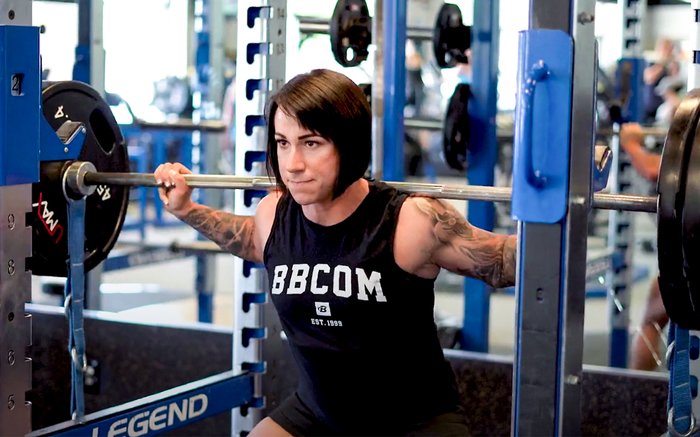
One cue Laura gave to me was "flex your abs" as I came up out of the hole. Bracing tends to be a weakness of mine and I typically cave forward when I fail on a squat, so this tip helped me focus on staying tight and upright.
2. Glute-Ham Raise
These are easy to cheat, as I found out. Start with your torso perpendicular to the floor. Before descending, squeeze your glutes and flex your hamstrings and abs. Lower yourself in a controlled manner until your body is parallel to the floor. As you come up, you should still be squeezing your glutes and hamstrings as you actively press your feet into the plate.
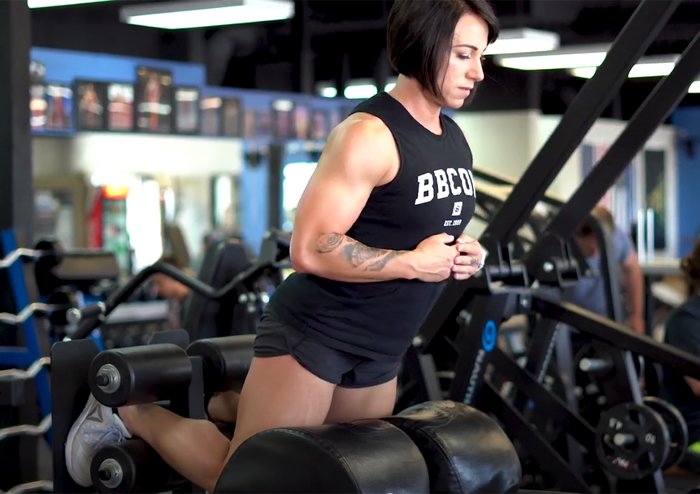
Your entire body should come up in one motion without bending at the hips. Phelps gave me a tip to keep my knees at least two inches above the bottom of the pad throughout the movement. If they're sliding down lower than that, I'm not really using my hamstrings alone. Glute-ham raises can be difficult even with just body weight, so try band assistance, if necessary.
3. Safety Squat Bar Stationary Lunge with Chains
Safety squat bars are one of the more awkward pieces of equipment in the gym if you haven't used them before. To make things more fun, our program actually called for walking lunges with this bar and chains, but we didn't have room in our gym for that. Instead, we opted for stationary alternating lunges, and I was little wobbly on those to say the least.
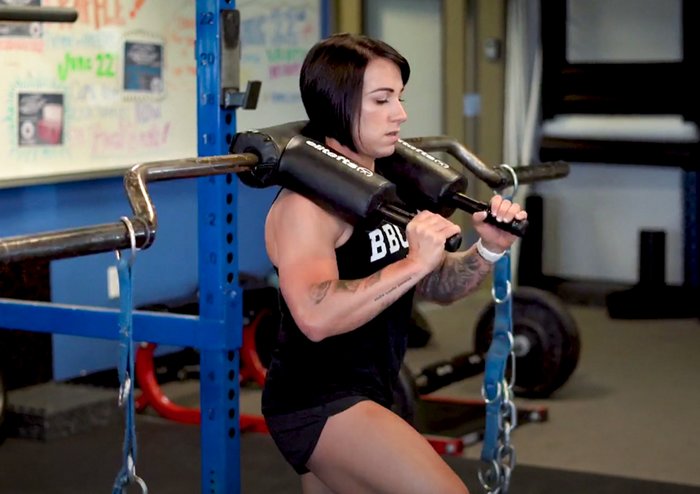
Improvising is always on the table with this style of training, depending on your equipment availability and even experience level. Don't skip it just because you can't do it exactly as the training protocol says; find alternative exercises or make small tweaks so you can still do the movement and get the work in for the intended muscle groups.
4. Single-Leg Reverse Hyperextension
The reverse hyper is a rare find in a sea of machines in most gyms, which is a shame because it's probably more effective for posterior chain health and strength than many others you typically see. Phelps often programs these for sets of 10-15 on the low end (strength day) or 20-30 on the high end (recovery day), with the load adjusted accordingly. Let me tell you, sets of 30 with 70 percent of your deadlift max is a fun time for those who enjoy struggling to breathe.
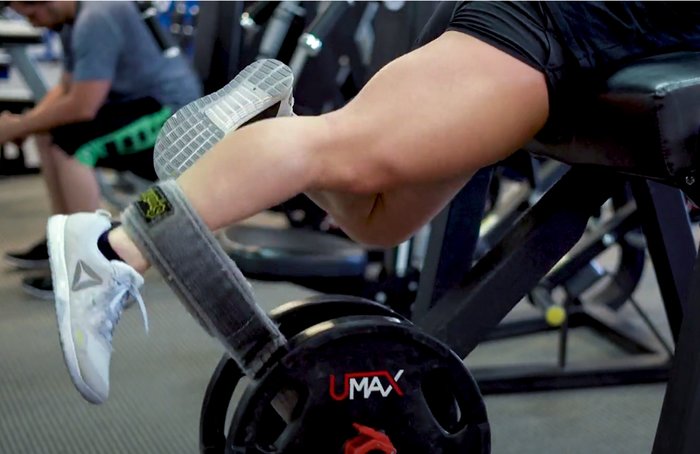
Today was a much lighter load with the single-leg version. Perform these the same way you would regular reverse hypers, except one leg is left out and off to the side. Make sure your hips remain square on the pad. At the top, raise your head and upper back, squeeze your glutes, and hold for a split second before releasing the weight. You should be in control of the weight throughout the motion. Phelps loves these for their carryover to the deadlift.
5. Leg Extension with Rep Limit
Not much explanation needed here—100 reps, as many as you can in a row with a moderately heavy weight. The goal is to complete them all in as few sets as possible. So, no, they shouldn't be so light that you're breezing through 80-100 reps on the first try. As a workout cap for today, these aren't supposed to feel amazing, but they also shouldn't be sloppy for the sake of getting them done faster.
Abs and Finishers
While we didn't have time to get to the typical workout finishers, it should be noted that Phelps (and the conjugate method in general) is big on ab work, finishers, and recovery work.
Abs, for starters, are not trained for aesthetics here. Training your core strength and stability may seem tedious, but doing it properly can yield big results. The core work Phelps has me doing includes decline sit-ups with a plate overhead, barbell side bends, and banded oblique twists.
Finishers and recovery work can mean a slew of different things to different people, but in the case of Westside Barbell, it most often comes in the form of sled drags, farmer's carries, or the prowler, all done with a certain percentage of your one-rep max deadlift for a certain distance.
Whether you're for Westside, against Westside, or take no side at all, give this workout a try and tell Laura Phelps via Instagram that it didn't leave you waddling the next day.

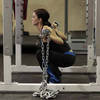

BodyFit
$6.99/month- 2,500+ expert-created single workouts
- 3,500+ how-to exercise videos
- Detailed workout instruction
- Step-by-step workout tips
- Training at gym or at home
- Access to Workout Plans
- Access to Bodyfit App
- Store Discounts
Already have a Bodybuilding.com account with BodyFit? Sign In

What comes with BodyFit?
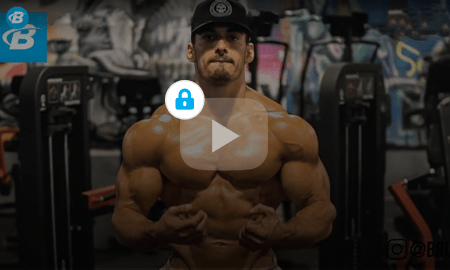
- Instructional Videos
Don't risk doing a workout improperly! Avoid injury and keep your form in check with in-depth instructional videos.
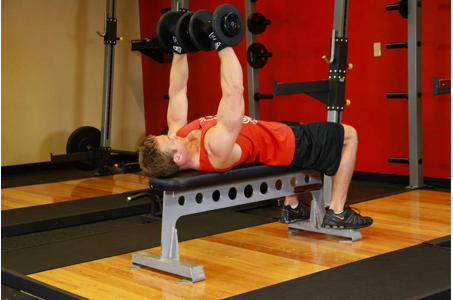
- How-to Images
View our enormous library of workout photos and see exactly how each exercise should be done before you give it a shot.
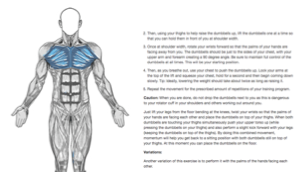
- Step-by-Step Instructions
Quickly read through our step-by-step directions to ensure you're doing each workout correctly the first time, every time.
Nailing down the basics with barbells is always a good idea. Want to train like a powerlifter and learn the essentials? Meg Squats' Uplifted program is your answer for building a solid foundation of strength and muscle.

